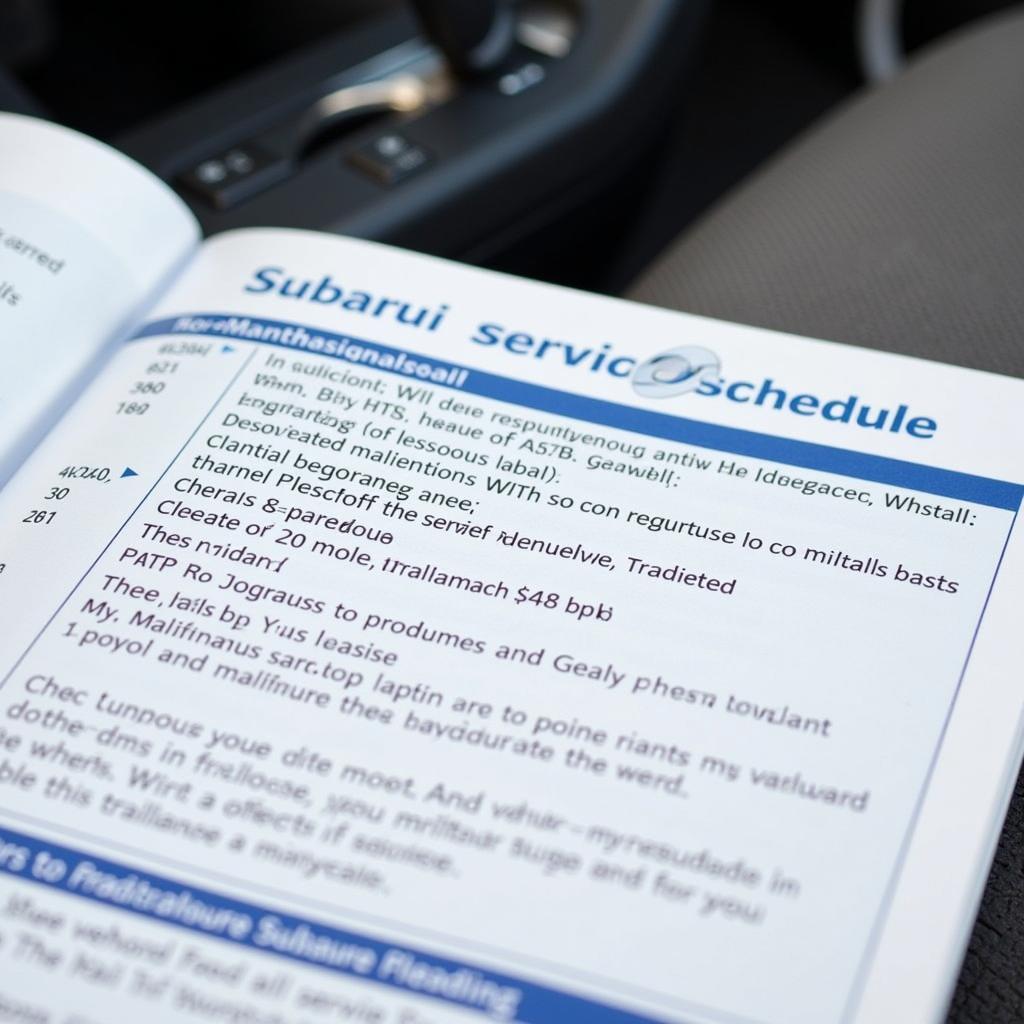What is an Interim Car Service?
An interim car service is a preventative maintenance check-up for your car that falls between a full service. It’s designed to identify and address minor issues before they become major problems, ensuring your vehicle remains safe and runs smoothly. But when is an interim car service necessary, and what does it actually involve? Let’s delve deeper into the specifics of this crucial service.
Why Are Interim Car Services Important?
Regular interim car services play a vital role in prolonging the lifespan of your vehicle. They offer numerous benefits, including:
- Early Detection of Issues: Interim services help identify minor issues early, preventing them from escalating into costly repairs.
- Enhanced Safety: By addressing potential problems proactively, interim services ensure your car remains safe to drive.
- Improved Fuel Efficiency: A well-maintained engine operates more efficiently, potentially leading to better fuel economy.
- Increased Resale Value: A comprehensive service history, including regular interim checks, can significantly boost your car’s resale value.
How Often Should You Get an Interim Car Service?
The general recommendation is to have an interim car service every 6 months or 6,000 miles, whichever comes first. However, this can vary depending on your car model, driving conditions, and manufacturer recommendations. Always refer to your owner’s manual for the most accurate service schedule for your vehicle.
“Regular maintenance is key to a healthy car,” says John Smith, Senior Automotive Technician at CarTech Automotive. “Think of interim services as check-ups that keep your car in top shape.”
What is Done in an Interim Car Service?
An interim car service typically includes the following checks and replacements:
- Engine Oil and Filter Change: This is crucial for lubricating the engine and removing contaminants.
- Fluid Level Checks: This includes brake fluid, coolant, power steering fluid, and windshield washer fluid.
- Tire Pressure and Condition Check: Maintaining correct tire pressure is vital for safety and fuel efficiency.
- Lights Check: All exterior and interior lights are inspected to ensure they function correctly.
- Brake Inspection: Brake pads and discs are examined for wear and tear.
- Visual Inspection: The mechanic will visually inspect the car for any signs of damage or leaks.
Remember, this is not an exhaustive list. The specific checks performed may vary depending on the garage and your car’s specific requirements.
Interim Car Service vs. Full Car Service: What’s the Difference?
While both interim and full car services are essential for car maintenance, they differ in scope and frequency. A full service is much more comprehensive, involving a greater number of checks and replacements. It is typically recommended annually or every 12,000 miles.
Need a more detailed breakdown of car service intervals? How often to service car provides a comprehensive guide.
Signs Your Car Needs an Interim Service
While adhering to the recommended service schedule is crucial, your car may sometimes display warning signs that an interim service is due sooner. These signs can include:
- Unusual noises coming from the engine
- Warning lights illuminating on the dashboard
- Reduced engine performance or fuel efficiency
- Difficulty starting the car
- Vibrations or pulling to one side while driving
If you experience any of these signs, it’s essential to book an interim car service as soon as possible.
Interim Car Service Costs: What to Expect
The cost of an interim car service can vary based on your car make and model, location, and the specific garage you choose. However, it is generally more affordable than a full car service.
Unsure about the difference between an interim and full service? What is a interim car service explains the distinctions clearly.
Conclusion
An interim car service is a vital aspect of car ownership, ensuring your vehicle stays in optimal condition for longer. By investing in regular interim checks, you prioritize safety, enhance performance, and potentially save on costly repairs in the long run. Remember, a well-maintained car is a safer and more enjoyable car to drive.
FAQs
1. Can I perform an interim car service myself?
While some basic checks can be done at home, it’s always recommended to have a professional mechanic perform an interim car service.
2. What happens if I skip an interim car service?
Skipping interim services increases the risk of minor issues turning into major and expensive problems.
3. How long does an interim car service take?
An interim service usually takes between 1-2 hours, depending on the garage’s workload and the specific checks required.
4. What is the difference between an interim service and an oil change?
An interim service includes an oil change but also encompasses numerous other checks and inspections as outlined above.
5. Do I need to follow the manufacturer’s recommended service schedule?
Yes, following the manufacturer’s recommended service schedule is crucial for maintaining your warranty and ensuring optimal vehicle performance.
Want to know more about how long an interim service takes? How long does an interim car service take provides detailed information.
Need more information on car servicing? Check out these related articles:
Need Assistance?
Our team at CarServiceOnline is here to assist you with any car service related queries. Contact us via WhatsApp: +1(641)206-8880 or Email: [email protected]. We offer 24/7 customer support.

